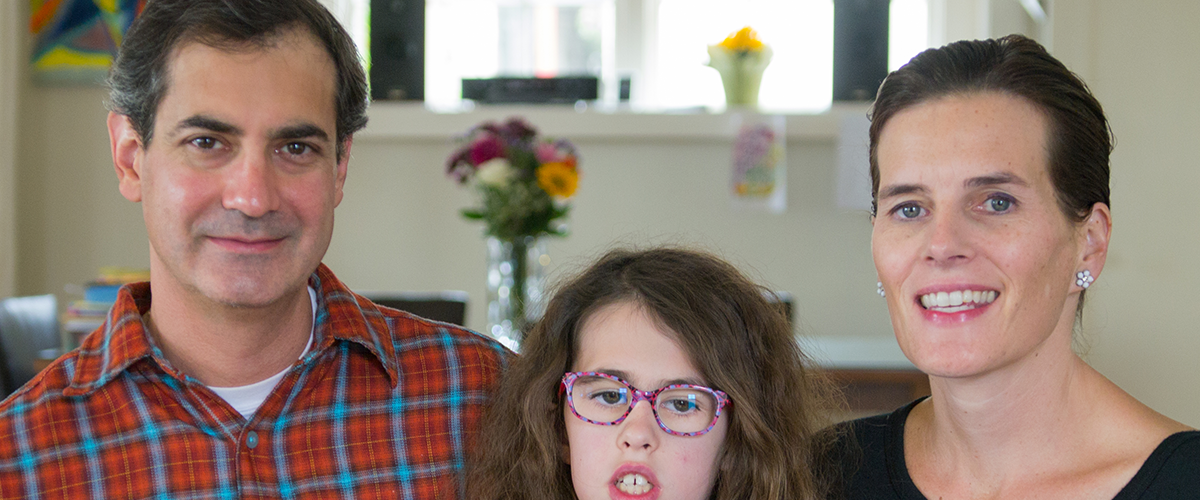
Mike Hamlin learned that he has DM1 in 2007. After retiring from a career at the Environmental Protection Agency in 2013, Mike worked with members of the local DM community to launch a DM support group in the Washington, DC area. The group is going strong, now led by one of its original members. Mike recently relocated to Key West, Florida, to follow his dream of living life creatively and with purpose. We asked Mike to tell us about the experience of launching a DM support group.
How did you decide to become a support group facilitator?
I went to the 2010 MDF Annual Conference in Minneapolis, never having met anyone with DM before. At the conference, there was a whole room full of us. For the first time, I knew I wasn’t alone. Later, I realized there were no DM support groups in Washington, DC. I contacted Leslie Krongold, who formerly ran the MDF Support Group Network, to talk about starting one.
I have a wonderful family and was in a relationship that was very fulfilling. But still, I have this difference on chromosome 19 that I carry around. I ached a little bit inside from the loneliness that difference can cause. My personal motivation came from a desire to connect.
How did you begin?
The first step was to find a suitable space to meet. When I approached Sibley Hospital, they were very receptive to hosting our group. So we had an accessible, private, pleasant place to meet.
Were you nervous about anything at the start?
I had a long career as a human resources manager. That’s unusual perhaps because I’m a big time introvert. I’m shy. I wondered if anyone would come to our meeting. And I was uncertain about the questions people might pose. Not the medical questions so much, but the personal questions that we hold inside and that don’t have answers. How long am I going to live? What are my expectations of my husband, wife, kids? How am I going to raise these issues with them? How do I get around? Can I live by myself or not? DM affects the most important things in your life. As one of our participants puts it, “There are so many uncertainties, how the hell do you plan?”
As a support group facilitator, what do you set out to accomplish?
The facilitator needs to set up a format where people can connect -- to provide structure so that the time is well managed. But not tightly managed. It’s important for the group to own the meeting. We decide together what we want to talk about. I want to provide a place where people who have DM can bring up anything they want to and talk about it, anything at all.
Do you talk about medical issues?
We build in a knowledge period, time in the agenda to talk about medical or scientific topics or recent research. For medical questions, we go to the MDF website and their Toolkit. We are in touch with specialists at Johns Hopkins Medical Center, as well as Kennedy Krieger Research Institute, one of the sites for the Isis Pharmaceutical drug trials. We email them with specific questions and requests for referrals.
What surprises you about the dynamics of the group?
In the work world, organizations engage in team-building activities, common experiences that help staff trust each other and become supportive teammates. Everybody that’s in a DM support group comes with something in common already. It’s in their DNA! From the start, there’s a level of trust that takes other groups or teams a long time to achieve.
How do you spread the word?
MDF is indispensable when it comes to using their database to publicize the group. They refer people from our area to us. We started out with 5 or 6 people. At the last meeting we were up to 14. Our DM community includes caregivers, moms, dads, sons, daughters and good friends of people with DM.
What has surprised you about your group?
The silence. The thing I’ve had to get comfortable with is managing the silence. When there is silence, the answer that there is no answer starts to sink in as it never has before. And from that comes strength, the strength to accept uncertainty and not let it be a barrier to living fully and seeking out relationships with others.
What’s on your horizon now?
I’m living by myself now and my son tells me I’m nuts. It can be scary. I’ve had to invent ways to open a car door or to open a jar of pickles. My right hand doesn’t work well anymore, so I have to work hard not to make a mess when I’m dining with other people.
But it’s also wonderful. I wouldn’t be in Key West right now if it weren’t for the emotional connection to wellness that I came to understand in our support group. It was in the stillness of that silence that I arrived at a new sense of freedom and purpose.
In a DM support group, each person benefits from the emotional strength you get from knowing that you’re not all by yourself. That helps you build your strength inside.
Interested in finding a support group or becoming a support group facilitator?
Facilitators are needed in New York City, Boston, Chicago, Southern Florida and many other places. For more information, please contact MDF at info@myotonic.org.

